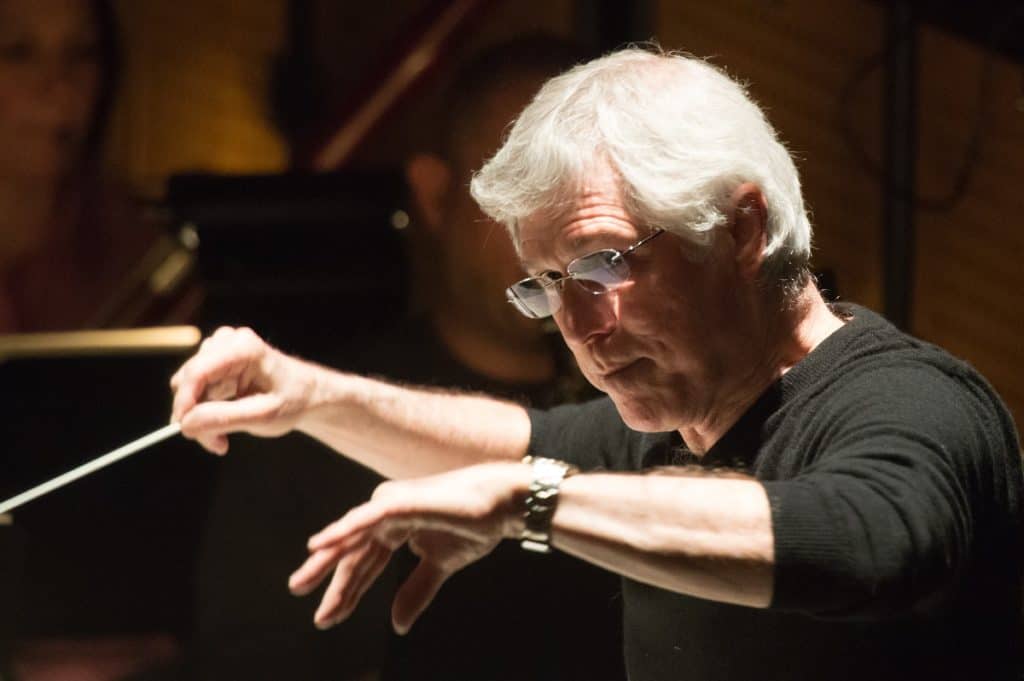Opera for All

Annapolis Opera speaks a universal language
Long, boring, complicated, humorless, and plotless are adjectives that come to some people’s minds when they think of the opera.
But are these sentiments based not on what we’ve experienced but rather on what we’ve assumed, serving as easy excuses to avoid something that we’re too intimidated to try? The artists at Annapolis Opera want to break down your excuses.
“Most people react to the word ‘opera’ without ever having experienced it,” says Ronald Gretz, who retires in June after 37 years as Annapolis Opera’s artistic director. “They might think that you need to know a lot about music to appreciate it or know the language that it’s in to follow what’s happening, but that’s simply not true—music is a universal language.”
“There was a shift in perception about classical music, and opera in particular, in the first half of the 20th century,” says Kathy Swekel, Annapolis Opera’s general director since 2014. “The perception became that opera was only for rich or snobby people. But the fact is that opera was originally a community event for everyone. It told a story set to music and had singing, dancing, beautiful sets, and costumes… And while many people might not know it, much of American musical theatre is a direct descendent of opera—for example West Side Story is Romeo and Juliet, Miss Saigon is Madame Butterfly, and Rent is La Boheme. We just need to continue reminding people that opera is fun
for all.”
Swekel and Gretz are making opera fun by creating “opera the Annapolis way” and making it accessible and attractive for people of all types and ages.
One way they are doing this is providing subtitles at every performance, not just the popular operas performed in Italian, French, German, or Russian, but even during those performed in English. Annapolis Opera also coordinates lectures ahead of each opera, covering everything from its history to its composer to its plot, so audiences know what to listen for during the performance.
Of course subtitles and background don’t mean much if the opera itself isn’t engaging. To that end, throughout his 50-performance tenure Gretz has featured young singers, many in lead roles for the first time, in shorter productions such as La Traviata, Barber of Seville, Little Women, Carmen, Magic Flute, South Pacific, and H.M.S Pinafore.
“My job is to make the notes on the page come alive, so I make a point to showcase young singers, most between 20 and 35, who are full of excitement and camaraderie,” says Gretz. “I strive to make sure the singers are relaxed and not worrying. Because if the cast is enjoying the performance, the audience senses the enthusiasm and reaps the benefits.”
Gretz appropriately chose Carlisle Floyd’s tragic American opera Susannah to serve as his directorial swan song. Based on the biblical story Susannah and the Elders, the 1954 opera is set in rural Tennessee and rich with Appalachian folk music.
The opera is about a beautiful and virtuous 18-year-old girl who inadvertently incites the lust of her church elders, is accused of being a seductress, and refuses to repent for her alleged sins, all leading to disastrous consequences. While the opera clearly alludes to the McCarthy era in which it was written, its themes of men in power behaving badly and rumors trumping facts are as timely as ever.
“It’s an American opera that needs to be seen and heard,” Gretz concludes.
Susannah runs March 13 at 7:30pm & March15 at 3pm, Maryland Hall, Annapolis, rsvp: marylandhall.org/susannah-1.
